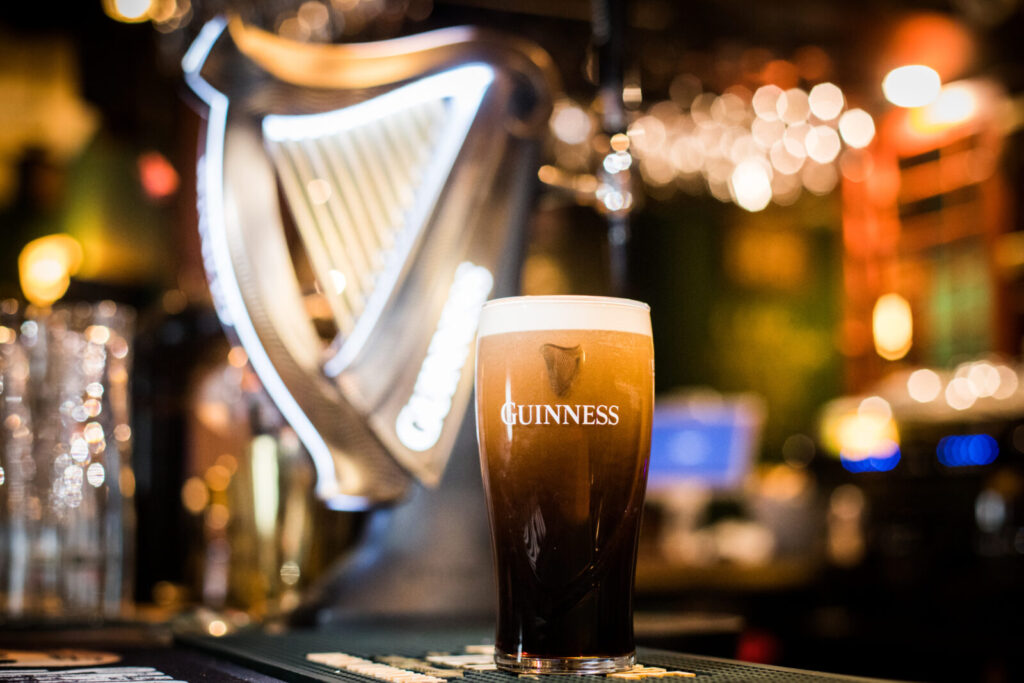Brief • 3 min Read
In The Harris Poll Tracker (Week 100) fielded January 21st to 23rd, 2022 among 2,120 U.S. adults, we look at why Americans seem as anxious as they were in 2020, if Americans are ready to put on N95s, the careful balance of consumer tracking in customer service, how global and U.S. vaccine brands compare in reputation, and the latest in cybersecurity strategies.
As a public service, our team has curated key insights to help leaders navigate COVID-19. Full survey results, tables, and weekly summaries can be accessed for free at The Harris Poll COVID-19 Portal. We will continue to actively field on a regular cadence to track the shifts in sentiment and behaviors as the news and guidelines evolve.
Consumers in 2022 Are Anxious, Uncertain, and Stressed Out: Ad Age-Harris Poll
In a recent op-ed in Ad Age, Harris Poll CEO Will Johnson looks at how circumstances have changed as we enter year three of COVID-19. So why do so many Americans feel an existential anxiety so redolent of spring 2020?
- Americans are antsy about their jobs: “The Great Resignation” isn’t stopping as nearly one in four Americans (23%) report plans of quitting their job within a year, and younger workers (ages 18-24) were twice as likely than their older colleagues (34% v. 15%, respectively).
- Americans are anxious about inflation: More than half (55%) self-described as very concerned about escalating prices in November. Household expenses are key: Americans worry most about being able to afford staples including groceries (84%), gasoline (83%) and home energy (78%).
- Americans are overwhelmed: Two-thirds of parents (68% of fathers and 64% of mothers) in this country say that managing child care decisions is an “overwhelming” experience.
Takeaway: Advertisers should continue to respect consumers for where they are mentally and physically. They want to engage in the world – travel, move, quit their jobs, change – but uncertainty and inflation are making them hesitant and worried.
COVID Vaccine Makers Pfizer, J&J Notch High Brand Marks Amid Overall Still-Strong Pharma Industry Reputation
Can the pharma industry hold onto its pandemic-minted positive reputation? So far so good, according to our latest data featured in Endpoint News.
- The pharma industry notched a (59%) overall positive industry sentiment, ahead of financial services (51%) and insurance (47%), and it’s not that far behind typical favorites like consumer packaged goods (64%) and retail (66%).
- Just behind Amazon: While (68%) of people around the world rated the Amazon brand positively, (62%) say the same about Pfizer, (61%) about J&J, and (53%) Moderna.
- The lower rating of Moderna may be attributed to it not being as available or well-known globally, for in South Korea where Moderna vaccines are available, the brand earned a (59%) positive rank, side-by-side with Pfizer (62%) and J&J (63%).
- Don’t count J&J out: while it’s the lowest of the three vaccine brands in US vaccine ranking, the brand ranks above Pfizer in Brazil, China, India, Russia, and South Korea.
Takeaway: The pharma industry will need to be aware of how their future developments, business endeavors, and price changes could threaten American and global sentiment.
Will Americans Adopt the N95?
Across the country this week, the federal government will begin distributing 400 million free N95 masks via pharmacies and community health centers. We checked in with Americans to see how they view different types of masks in protecting against COVID:
- What is most effective? (86%) of Americans think N95/KN95 masks are effective in protecting against COVID, while (75%) say surgical masks are effective, (55%) say the same of cloth masks, while one-third (35%) say the same of neck gaiters or bandanas.
- Despite being viewed as the most effective mask, N95/KN95 (29%) are the third most worn mask – trailing cloth masks (36%) and surgical masks (33%).
- Gen Z (20%) are lagging behind older generations in adoption of the N95/KN95 (31% Millennials, 31% Gen X, 29% Boomers).
- Yet, if availability were not an issue Americans would prefer N95/KN95 (62%) over surgical (12%) or cloth (11%).
- Vox explains why N95 masks are the best option during the Omicron wave.
Takeaway: Given contagiousness of Omicron, increased usage of more effective masks like the N95 will be critical in businesses being able to stay open and avoid labor disruptions and outbreaks.
Brands Are Overconfident With Their Privacy Approach: Redpoint Global-Harris Poll
Most brands believe the future without third-party cookies will have a moderate or large impact on how they acquire customers, and their ability to deliver quality customer service to them, according to our new report with Redpoint Global and featured in Adweek.
- A world without third-party cookies has marketers concerned: A majority (65%) admit that this shift is likely to have a big or moderate impact on their ability to acquire new customers.
- Most (71%) admit it will have a big to moderate impact on their ability to deliver an exceptional customer experience.
- Brands recognize the need to offer something of value to people in return for collecting their data: (57%) are considering incentives, while (53%) are investing more in first-party data systems and (51%) are pursuing alternative identifiers.
- Four in 10 (39%) people are willing to let all brands use tracking cookies to improve their experience – and (67%) are willing to let some brands they explicitly approve use tracking.
Takeaway: Marketers need to keep in mind the key theme of consumers getting something in return. Otherwise, about (74%) of consumers are willing to opt out of all cookies on devices and browsers, if given the option.
How Cybersecurity Has Changed Since the Pandemic Started: Anomali-Harris Poll
Our recent survey among 800 cybersecurity decision makers, conducted with Anomali, provides visibility into the current cybersecurity threat landscape and reveals the top challenges to establishing a resilient cybersecurity posture. Here’s what we found:
- Since the pandemic started, (83%) of enterprise security decision makers have experienced more attempted cyberattacks, while (87%) report an increase in phishing emails – with many of these phishing attempts using COVID-19 related themes.
- Only (49%) of these decision makers strongly agree that their cybersecurity teams can quickly prioritize threats based on trends, severity, and potential impact on their organization.
- More than three-quarters (78%) have re-evaluated cybersecurity strategies since the start of the pandemic, while (74%) say their budgets for cybersecurity have increased over the past year. They report, on average, that (38%) of their overall budget is now devoted to cybersecurity.
Takeaway: “This new research reveals that adversaries have not only stepped up the number of attacks they have started launching since COVID-19 first struck the world, but have also greatly improved their success rates,” said Hugh Njemanze, President, Anomali.
Subscribe for more Insights
Subscribe to our newsletter for the latest trends in business, politics, culture, and more.
Download the Data
This survey was conducted online within the U.S. by The Harris Poll from January 21 to 23, among a nationally representative sample of 2,120 U.S. adults.
Download
Subscribe for more Insights
Subscribe to our newsletter for the latest trends in business, politics, culture, and more.
Download the Data
This survey was conducted online within the U.S. by The Harris Poll from January 21 to 23, among a nationally representative sample of 2,120 U.S. adults.
DownloadRelated Content








